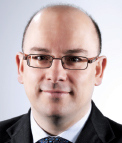A record number of 19,859 attendees at the European Society for Medical Oncology (ESMO) 2014 Congress discussed changes to oncology that will soon have a positive impact on the care of patients around the world.
“We are particularly pleased to see participants from 131 countries at the congress this year,” said ESMO President Rolf A. Stahel, MD. “The European Society for Medical Oncology is truly a global congress with growing participation from countries outside Europe, especially the far east.”
Precision Medicine in Cancer Care
A theme of the congress was “precision medicine in cancer care”, said
Professor Johann de Bono, from Royal Marsden Hospital and the Institute of Cancer Research, United Kingdom, and Chair of the ESMO 2014 Scientific Committee. “We are increasingly able to target cancer treatments to the important molecular mechanisms that underpin the malignancy. This is what we mean by precision medicine.”
Scientific highlights of ESMO 2014 included trials that will change clinical practice very soon, noted Professor de Bono. “We were excited to hear the results of a number of very important studies that will have a direct impact on the way we treat patients in the clinic, in a range of tumor types including lung cancer, breast cancer, and melanoma,” he said. “An improvement in treatment for cancer anorexia and cachexia, as reported at this Congress, is also a much-needed advance.”
ESMO has an important role to play in driving further improvements in diagnosis, treatment, and care of patients by supporting scientific research, said Dr. Stahel. New initiatives include the development of courses on clinical trials to help oncologists who wish to take part in research, and the development of the ESMO Magnitude of Clinical Benefit Scale, which will provide a means of assessing approved therapies by using important clinical measures.
As part of this goal of facilitating research, ESMO will also continue to strengthen its collaborations and connections with other disciplines that are important in developing new therapies, he said.
“Through these and other initiatives, I am committed to ensuring ESMO uses its power and strength to promote and facilitate clinical and translational research in Europe and ultimately to help improve outcomes for our patients,” said Dr. Stahel. ■


